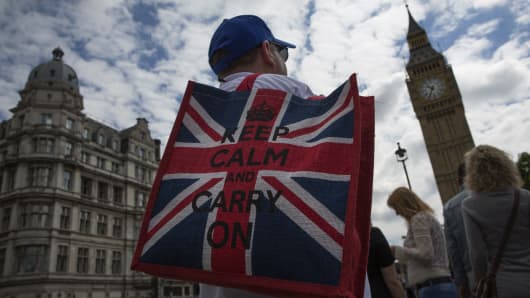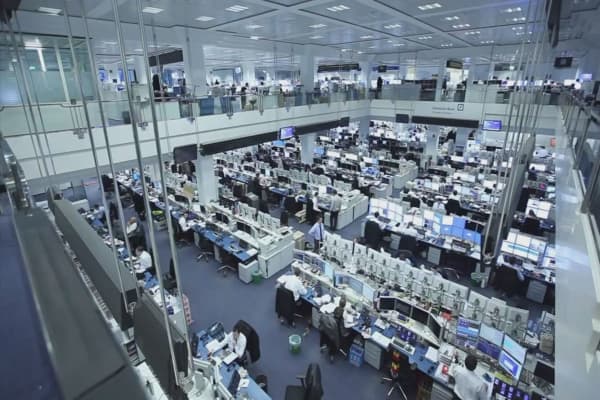Banks are preparing for an ‘economic nuclear winter’!
The first half of 2016 has been a roller-coaster for financial markets. A combination of uncertainties surrounding the U.K.'s vote to leave the European Union and weaker-than-expected corporate earnings results across the region means a tough second half looms.
European banks, in particular, have had a very tough six months as the shock and volatility around Brexit sent banking stocks south. Major European banks like Deutsche Bank and Credit Suisse saw their shares in free-fall after the referendum's results were announced. In the U.K., RBS was the worst-hit, with its shares plunging by more than 30 percent since June 24.
The current uncertainty over when the U.K. will start the process of quitting the EU has banks on tenterhooks. But a source told CNBC that banks are "preparing for an economic nuclear winter situation."
Speaking on the condition of anonymity due to the sensitive nature of the topic, a source from a major investment bank told CNBC that financial services firms have put together a strategy in place that takes into account the worst-case scenario that could happen by the end of this year.
"This could mean triggering Article 50, referendum in other European nations leading to a break-up of the euro or sterling hitting below $1.20 or lower. The banks are ready for anything now," the source said.
The source further explained that the challenge in 2016 is nothing compared to when the Lehman Brothers collapsed in 2008 and the banking sector is this time a lot more resilient. "Markets hate uncertainty and the events this year have unfortunately created a lot of mystery around what is going to happen next."
Meanwhile, a common theme across second-quarter results has been a warning of uncertain times ahead. From big investment banks to mining firms like BHP Billiton and Glencore to the auto sector, companies have cited uncertainty and volatility in markets as a reason for weak results and have warned that the second half will be challenging.

Getty Images
An American tourist stands near the Houses of Parliament the day after the majority of the British public voted to leave the European Union on June 25, 2016 in London, England.
Following that, a number of banks have cut their exposure to equities due to the volatile nature of stocks in the first half the year. Earlier this month, Goldman Sachs downgraded stocks to "underweight" as part of its 3-month asset allocation citing global equities to be at the upper end of their "fat and flat range."
"The second half of the year is going to be very challenging for U.K. corporates," Craig Erlam, senior market analyst at OANDA told CNBC via email. "Not only are they contending with possible recession in the U.K. and more prolonged slowdown, the uncertainty factor surrounding Brexit leaves planning for the future a very difficult task."
Erlam further explained that a number of companies won't know for a while what the future of their operations in the U.K. will look like.
"I imagine many are already putting plans in place for moving operations abroad should the U.K. lose access to the single market. With companies less likely to invest and recession very possible, the second half of the year isn't looking great, particularly for those companies with greater exposure to the UK."
But while challenges continue to loom, some analysts have said it was important for companies to get on with their business.
"I think the main problem for the second half of the year is the uncertainty caused by Brexit, though that's likely to persist for two years or more, so I suspect companies are likely to roll up their sleeves and get on with their business," Laith Khalaf, senior analyst at Hargreaves Lansdown told CNBC via email.
Khaif explained that the challenges will remain but it is important for industries like banking for instance to focus on maintaining their solvency ratios and "de-risking and simplifying their businesses."

No comments:
Post a Comment